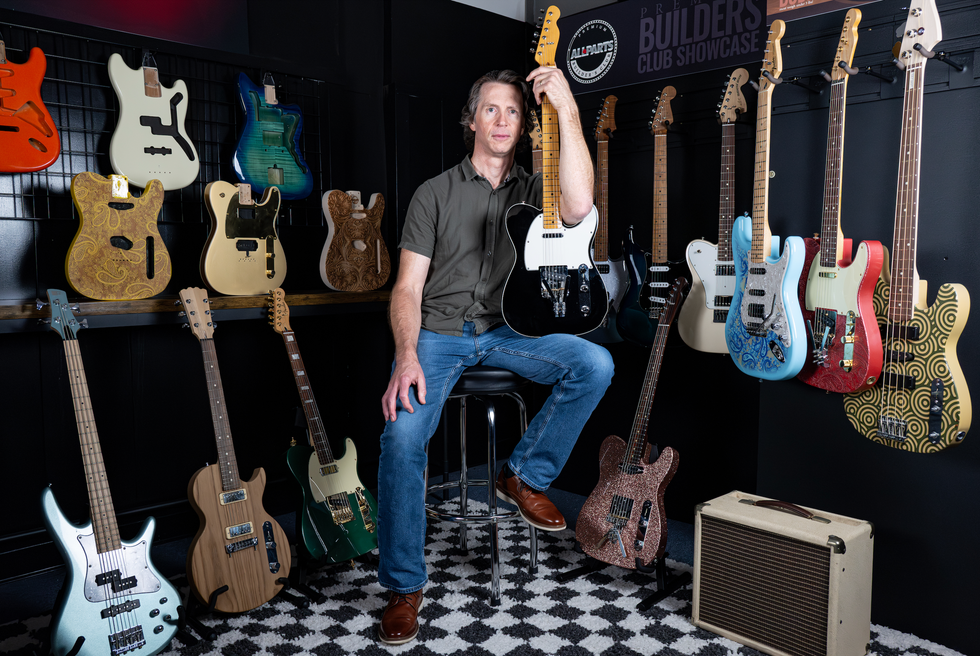For all of the churches around the country that have incorporated modern, contemporary music into their services, there’s even more that are grappling with it. From basic logistics to community approval, changing the type of music played during worship can have a huge impact – both good and bad – within a church.
If you’ve ever wondered about starting a contemporary worship program at your church, or if you’re just curious about what goes into a successful program, check out the following FAQ from the Music Ministry at North Point Community Church in Alpharetta, Georgia. For more information about the church, check out northpointmusic.org.
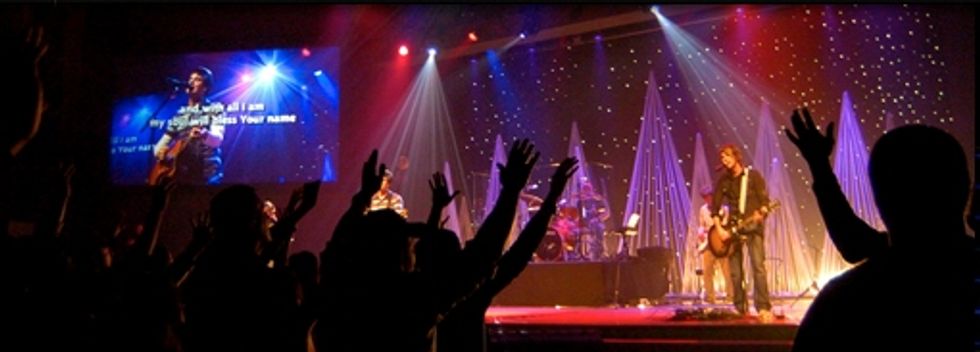
Vision and Philosophy
What did the music ministry at North Point look like in the beginning?
Ten years ago there was just a piano player with a worship leader and about seven worship singers performing group vocals. Our style certainly wasn’t what we’re doing now. It had a more piano-driven sound compared to today’s guitar-driven sound. We had a mixture of songs, some old and some new.
For the time the music was right where it needed to be – it was innovative for its time. It was in a converted warehouse where it looked more like we were going to a concert than to church. There was a P.A. hanging up and there was a stage that you would expect a band to be playing on.
What would you say to the people who say you shouldn’t play secular music in church?
We believe we have to have people excited about what we’re doing. We want people who come to church here to talk to their friends and relatives and to say to them, “You won’t believe what they did last Sunday. You would like this. You ought to come and listen.” That’s one of the reasons that North Point has grown. We want to do it well enough that they will brag on the band and say, “This band did a John Mayer song on Sunday. I know you’re a big John Mayer fan.” That’s more important than if a Christian who attends is bothered by the fact that we did a secular song.
If people continue to complain about the music, we would suggest that they go to another church. I know that we have members who think that the bass is too loud or have other complaints, but they’re here because they believe in the mission of the church, which is to reach lost people. Christians that are here and don’t particularly love the music, come because they know their lost friends and neighbors will be engaged by the music, and they believe that is what is most important. They’re here in spite of the music, not because of it.
Do you have non-believers performing on the stage?
We do. It wasn’t intentional at first - it just happened. We booked a musician who wasn’t a believer, and after he started playing with us, he became a believer. He wasn’t hired as a staff member, but as a contractual musician, playing a couple times a month.
Since then, it’s become a policy of ours to book people who are recommended by other current players. They believe that God’s doing something in the lives of those unbelievers and that it would be great for them to be in this environment, and that they’re great players and would fit in with the environment here.
You can’t invite just everybody in. We don’t hire the best players we can find regardless of whether they’re Christians or not. Ultimately we’d like to have a band full of believers, but we will bring in nonbelievers like in the above situation. We make sure to keep them surrounded by believers - to outnumber them.
This has been a ministry and we’ve had a handful of people who have become believers by being here. Some haven’t and eventually stopped playing here, but they still come back sometimes, and they love us and we love them.
How do you manage the tension between creativity and structure?
We’ve got a unique problem here. We have two auditoriums, simultaneously performing the same music. Between the two sides, we try to synchronize them within 30 seconds of each other. Because we have to synchronize the worship music, worship leaders can’t be overly creative. Although this is difficult, it provokes proper planning and structured song arrangements. Structure gives us more freedom to be creative. Obviously, the Holy Spirit leads us in planning, just like he guides the worship leaders during the services and allows them to reach the people.
We meet with the worship leaders during the week and plan arrangements that work for everyone. We work very hard to capture the creativity of the worship leaders and put that in a form that can be duplicated on both of our stages. The Holy Spirit is able to move on Monday and Tuesday afternoons as well as Sunday mornings.
How much freedom is there during rehearsals to create new arrangements?
There is some freedom during rehearsals. But most of it comes when we plan for rehearsals because we don’t want to rely on creativity solely from rehearsals. If creativity does occur, we definitely try to incorporate some into services, but we have to be prepared. We have people in the band who are convinced they’re inspired and their arrangements are inspired, so there can be a difference of opinion.
Preparation before rehearsals eliminates a lot deliberation during rehearsals, which translates into better use of everyone’s time and eliminates friction that can arise within a band.
Practically speaking, how does North Point synchronize the worship in simultaneous auditoriums?
We have all of our arrangements worked out beforehand, so we know the lengths of the intros and endings. Worship leaders have the freedom to say things between songs if they feel it’s necessary. We try to run the songs closely together so there isn’t a long period of time between them, which helps the synchronization.
In addition, there is a large LCD monitor, for the worship leader, that contains lyrics for the songs (Pro Presenter software) and a countdown clock. We agree on an estimated time to play the songs and allow the leaders to communicate a bit with the audience – this is refined during rehearsal. Essentially, the worship leader has freedom to talk or extend a tag, but needs to stop by 0:00.
The way we fill the time needed to allow the auditoriums to synchronize is to have the keyboard or piano player play lightly until the audiences are together. We’ll put up either a scripture or some phrase that relates to the message while the music plays, and this can last 20 seconds to a minute. It’s a great transition for people to get settled and ready for the message.
Do all of your musicians read music?
Although not everyone can read music, most of them can read music to some degree, but we don’t actually require lot of music reading. There’s an occasional riff here and there, but we generally use rhythm charts, which are a lot more accessible to a lot more musicians.
Unfortunately, most church music programs think rhythm charts or chord charts are the lyrics with some letters sporadically written over them. While these types of “cheat-sheets” have helped bring modern worship music to the masses, they are only useful if the entire band has memorized the exact same arrangement, which is highly unlikely. These sheets can create band friction by debating rhythms, voicings, measures, time signatures, repeats, lead lines, hits, rests, etc. This can lead to chaos at rehearsal and inferior music being played by the musicians.
We tend to use rhythm charts where actual bars and measures are displayed. With a little practice, ANY musician can effectively read a rhythm chart. And when there is a need for written notation or a melody line, it’s included.
A properly written rhythm chart is legible by musicians of all skill levels, and immediately answers just about every question that can arise during rehearsal, specifically those relating to chord progressions, song form and band dynamics.
Worship Leaders & Players
Where should a church look for players and worship leaders?
You need a connection with the players in your area and people (contacts) who can speak their language. If you’re the programming director or the creative arts pastor at a church, you need to be involved with the network of musicians in your area. Musicians talk to each other, they know each other, they recommend jobs to each other, and they get jobs from each other. Word of mouth recommendations are what will supply your needs long-term.
The key is to get great musicians excited about your program – to the point that they rave about it to their musician friends. It’s a good sign if you’ve got fantastic players with a grassroots-style attitude lining up to be a part of your program!
Do you pay your musicians?
We pay our musicians and we advise that you do too (if your church can). I know many people don’t pay their musicians and that system works for them, but we want professional-level players who can do nearly anything musically that we want to try.
We’re blessed to be in an area where there are Christian professional musicians who are in ministry. I think you’ll not only get better players by paying them, but you introduce a sense of accountability. You’d get fired from your job if you did it poorly – the same applies here. The other hand is that it can be great part-time income for a player that prepares faithfully and executes with brilliance.
I’ve had a lot of different opinions and reactions to paying musicians, but I personally agree with the portion in the Old Testament where the Levites (musicians) had their living taken care (expenses) of by someone else
How do you decide how much to pay?
First, you need to get in tune with your local music scene and get a feel for what’s standard for your area. We consider the number of songs that will be performed, the number of rehearsals required and the number of performances. With that information, you then balance that with your budget.
We believe that we should pay all our players the same. It’s also incredibly unfair to pay based on position. If a bass player was paid less than the guitarist, resentment and bitterness is sure to follow.
If we count all the hours they are here, what we pay them doesn’t add up to their normal hourly rate. They come at 6:00 p.m. on Wednesdays and they’re here until 9:00 or 9:30 p.m. and we provide them dinner (part of that time is sharing a meal together). They are usually here for eight hours on Sunday mornings. We broke it down once and it ended up being about $30 an hour for the actual time we required them to be here, whether playing or simply waiting for the next service to begin. They actually perform for 15 minutes at a time, but obviously we can’t do an hourly rate for those few minutes.
We want them to feel good about their experience here with the way we treat them, the people they play with and the part they play in helping us achieve our mission. We hope they feel what they do here is more rewarding than playing secular songs in some other environment.
We feel through organization we create a good environment for music. We want the stage to be prepared, the planned music ready and for them to feel we know what we’re doing. This is our way of showing them we honor and value their time and efforts.
What if the worship leader gets creative during the song?
It can become a problem because it can stem from poor rehearsal and the band not unified on an arrangement. When the band is guessing, they’re not playing very well.
Sometimes the worship leader will forget the form of the song or just become spontaneous in the middle of the song and decide to do a double chorus instead of a single. It throws the rest of the band for a loop and can mess up the person doing lyrics on the screen. And when the words get off, everybody in the audience feels it – especially the skeptical visitor!
How do you handle it?
You talk to them afterwards and address it with them. You could say something like, “Hey, we’re all a team. We’re all in this together: the lyrics person, the band, and the producer. We’re trying to sync up the services. We need to set up each other for success.”
How do you fire players?
It’s not easy, but hopefully by that point, it’s not a surprise to them. You don’t want them to walk in and be surprised to hear, “You aren’t coming back here anymore.” If there’s a problem, you need to talk to them. If there’s something they need to work on, you need to give them the opportunity to do something about it, whether it’s musical or personal. The easiest way is to just not book them, but that doesn’t help them, does it?
Music Selection
How do you put set lists together?
The short answer is that we try to make a set that we, as audience members, would want to hear. There are other factors that play into it; songs we need to do, new songs we need to work in.
A more technical answer is: We usually start with something up-tempo, over 110 beats per minute or so, then to a medium tempo, and then to a slow song. We usually do three or four worship songs that are “singable.” We also try to get songs that will flow fairly easily into one another, whether it’s based on song key or a specific instrumentation.
Another criterion we use is how often we’ve done the song, or the impact it had the last time it was played. Worship leaders gravitate towards certain songs in their heart, or there may be songs they lead very well – something they feel inspired by or that fits well in their vocal range.
How do you find performance songs that enhance the message?
We talk to as many people as possible. We try to find people on staff that love music and have a large collection of various genres in their iTunes. Of course, we want a song that relates to the topic of the day, something that sets up the sermon or incorporates tension the sermon can resolve.
We have an email list of people from all walks and seasons of life. Some may be classic rock lovers or some may be hip-hop lovers. With the help of everyone, we cover the spectrum of music genres.
A great resource for small churches is the top ten iTunes downloads, or the billboard top 40. On iTunes, the radio station play lists are great resources. We live on iTunes!
When a person with authority over you suggests songs that just don’t fit in with where you’re trying to go, how do you handle that?
We try to do it gingerly. Andy will suggest songs, but he never says, “Okay, we’re going to do this song.” And there are songs that he doesn’t like that we keep doing. And he’ll say, “Well, I don’t like it, but okay.” We’re just blessed to be in an environment like that.
We hold meetings with people throughout our congregation that offer musical suggestions, but the music department makes the final decision. Andy has come back a couple of times and said, “You know, I hated that song, but it worked and I’m glad y’all did it.” He’s great about doing that.
What advice would you give someone who is not in that kind of environment, whose pastor isn’t as cooperative?
You have to get everyone on the same page, because you need everyone’s cooperation to make it work. The opposite of that is true too, in that the senior pastor sees what’s happening in other growing churches and wants to move in that direction. His music director may not have experience along those lines. That’s one thing we’re trying to do with North Point Music - to provide resources for those people to help them move along in that direction.
One thing you might want to do is examine the song that your pastor doesn’t like. See if there’s anything else you could use as an alternative, but if you can’t, plead your case.
You might say something like, “You know what? This is what the kids are listening to. These lyrics totally match up with the topic or what you’re talking about.” or, “Everybody in the audience is going to recognize this song.” The key is to approach him with a humble attitude.
How much money would someone need to start a decent music program?
For keyboards, you would need around $2,000 to buy a medium-size instrument that would solve a lot of your problems. However, you could start with Propellerhead’s Reason software (on an existing computer) and a USB controller for under $500.
We don’t own guitar amplifiers or guitars. They are such player-specific items, so players own their own guitars and amplifiers. They also bring their own pedal boards, but we do own a decent acoustic guitar in case of an emergency or for us to use in the office during the week.
We do own direct boxes for acoustic guitars and bass guitars, and we use Avalon D.I.s. All they need to show up with are their guitars and amps.
We provide the drums and cymbals, but not sticks. Stick choice is very personal to each drummer.
However, the bottom line is other than a good sound system (mics, mic cables, direct boxes and a monitoring solution) most musicians will have some kind of gear they can bring to play. But over time, you control the quality of sound by the gear you provide and who you ask to play it!
To check out more questions and answers from the music department at North Point Community Church, head over to northpointmusic.org, where you can find this and a variety of other downloadable assets, from audio clips to multitrack files!


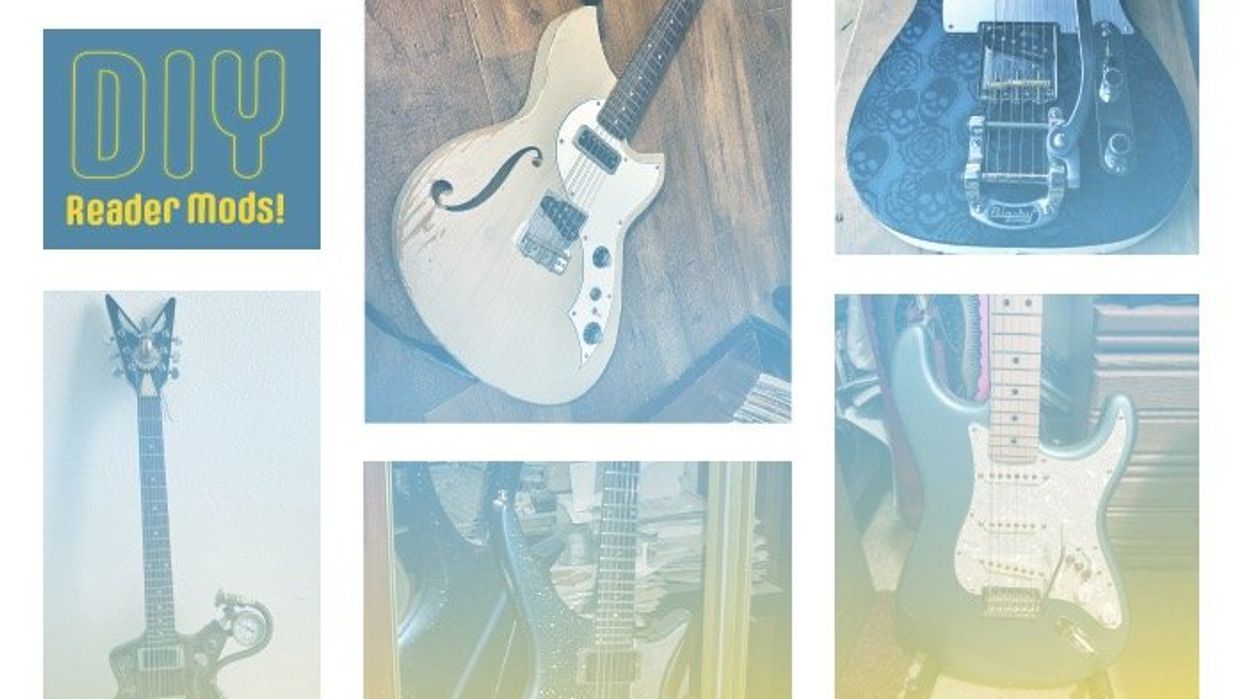
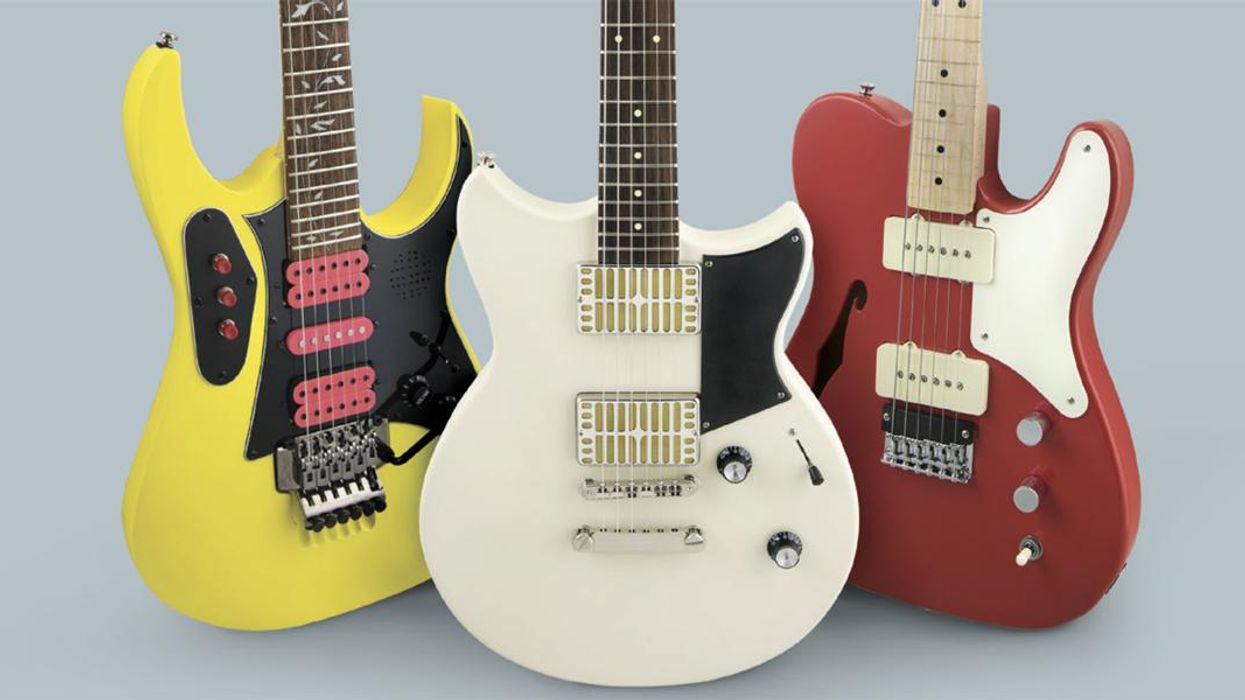
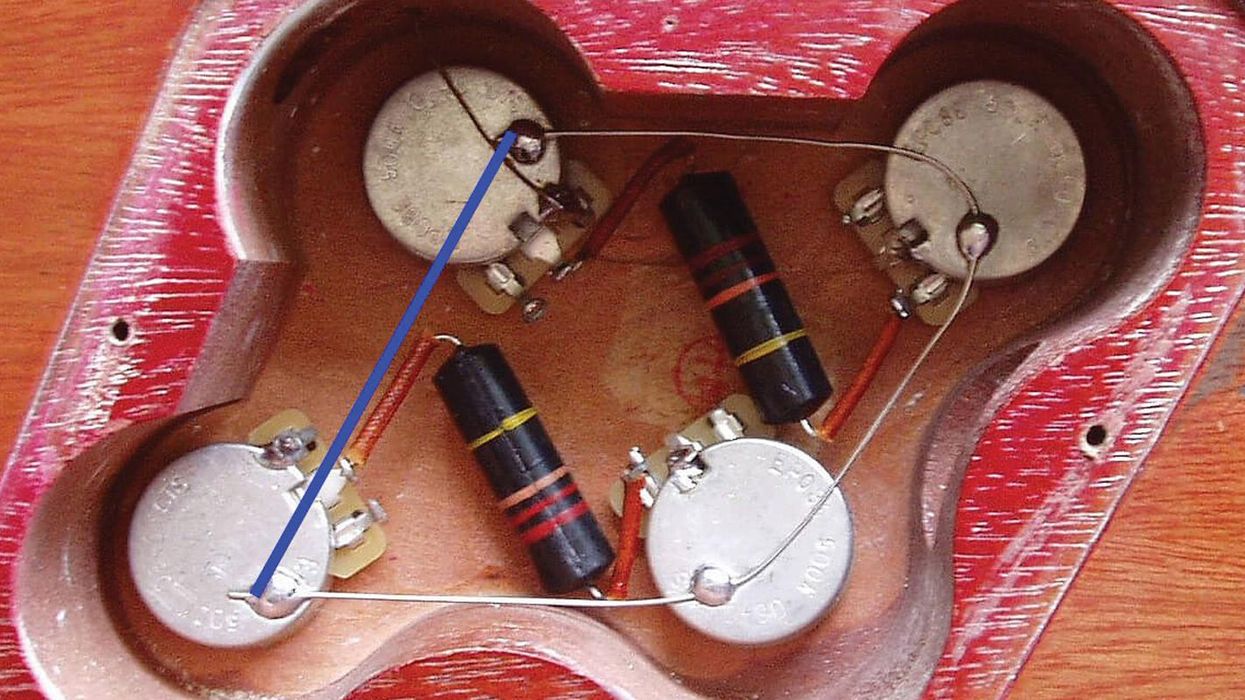
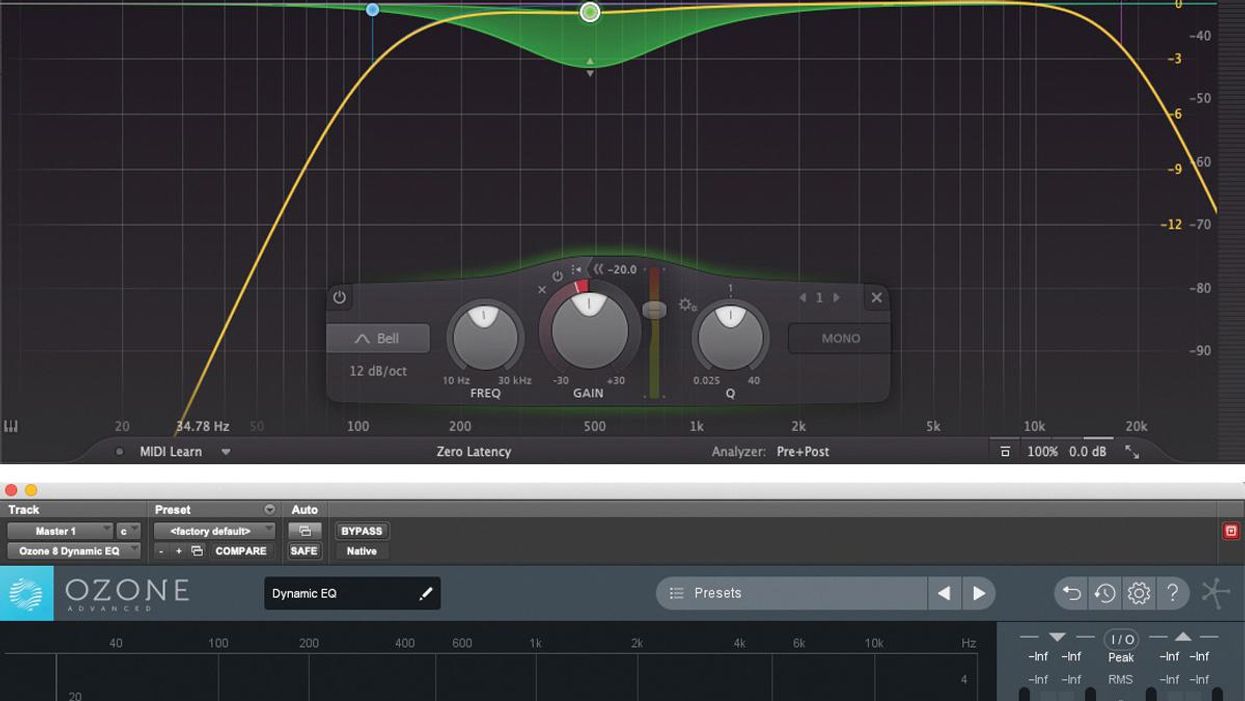
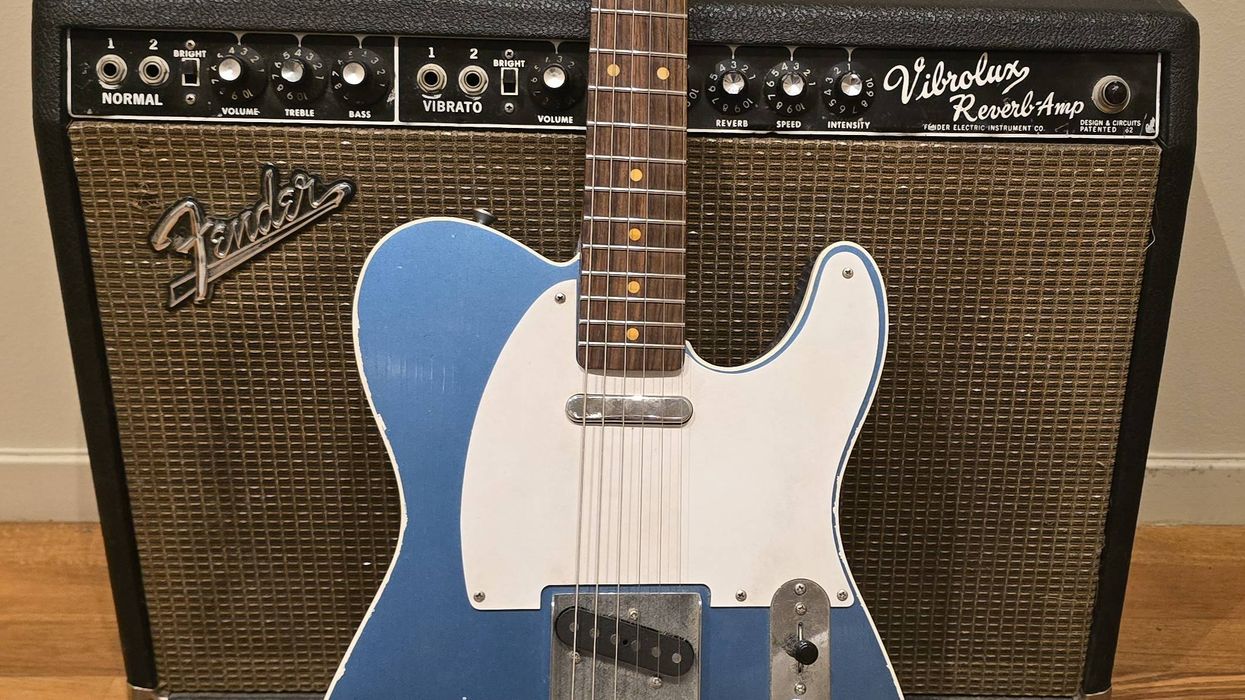

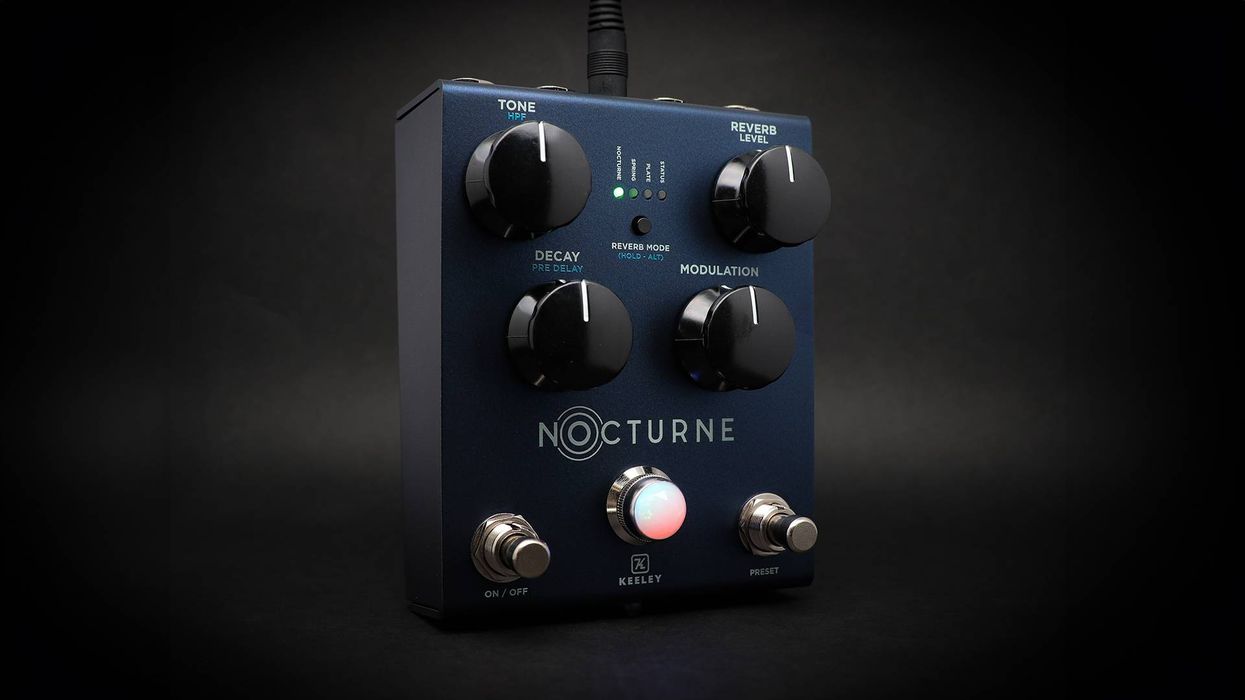
![Rig Rundown: Russian Circles’ Mike Sullivan [2025]](https://www.premierguitar.com/media-library/youtube.jpg?id=62303631&width=1245&height=700&quality=70&coordinates=0%2C0%2C0%2C0)

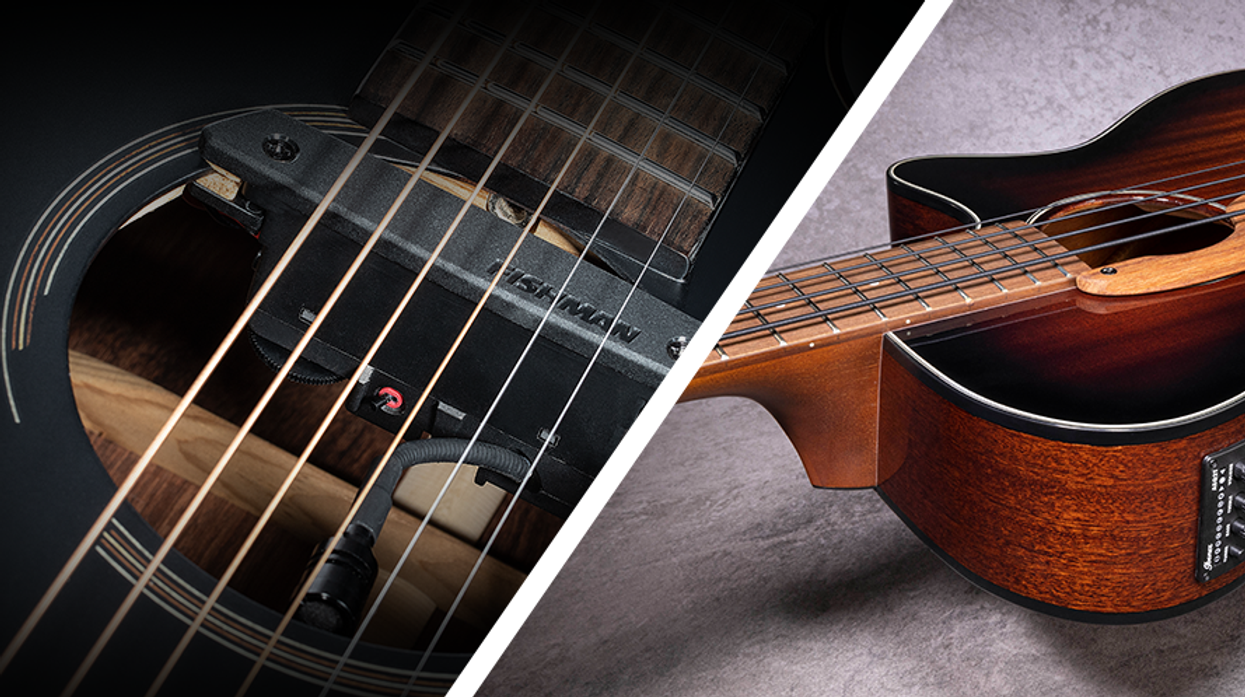

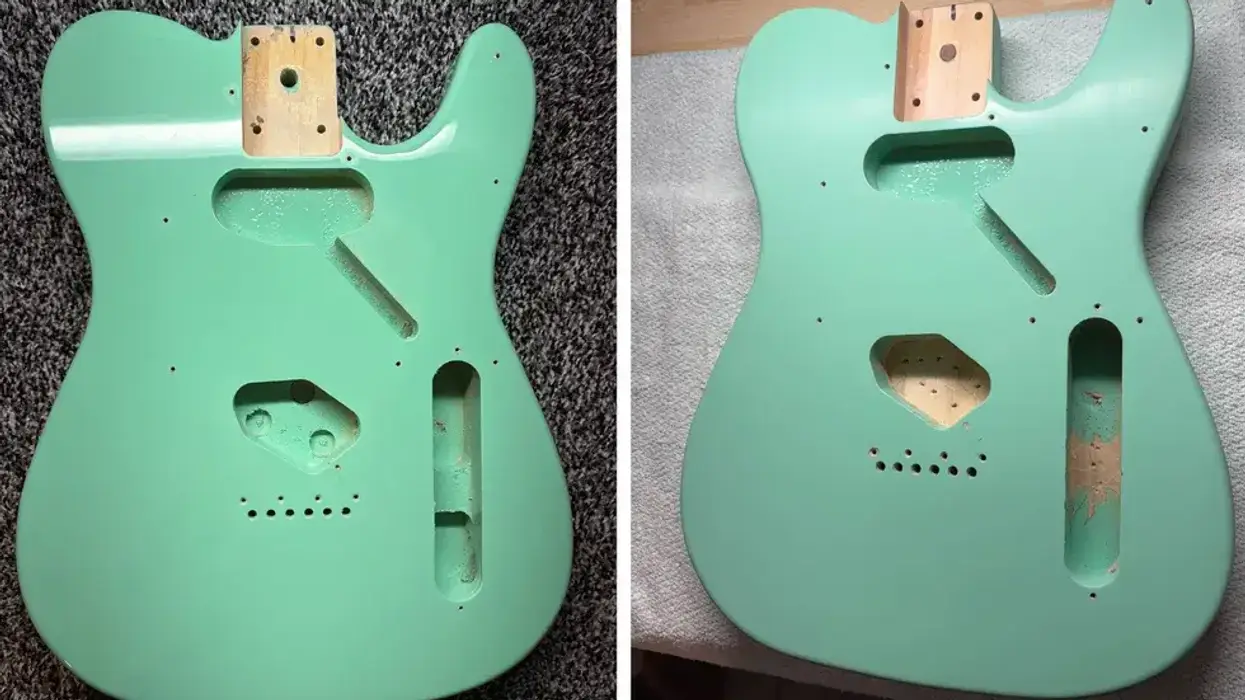

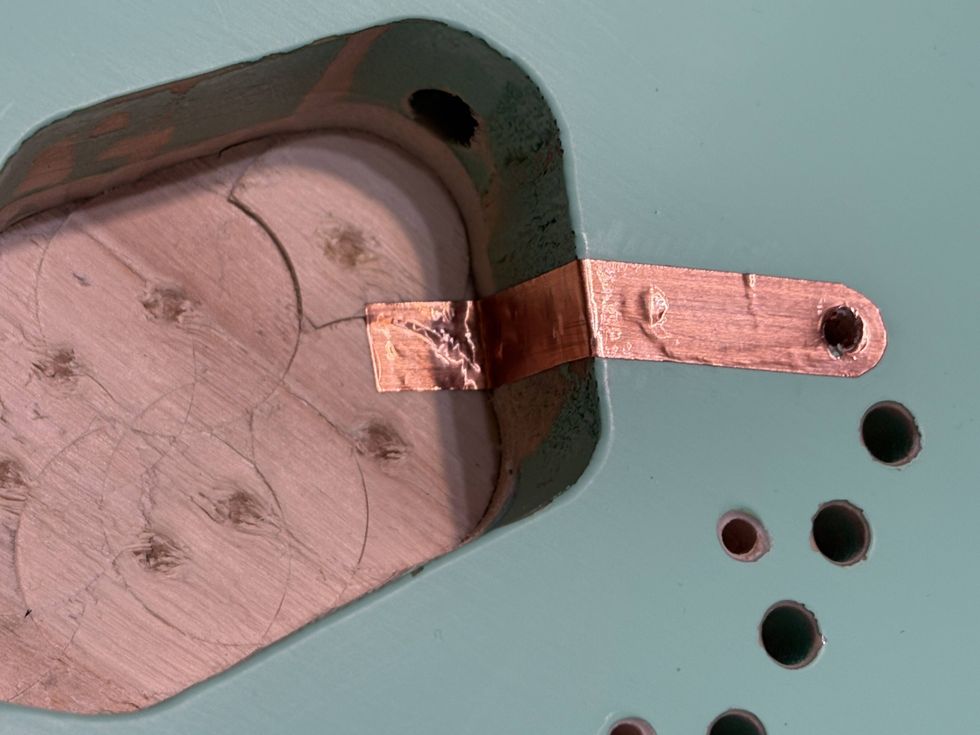
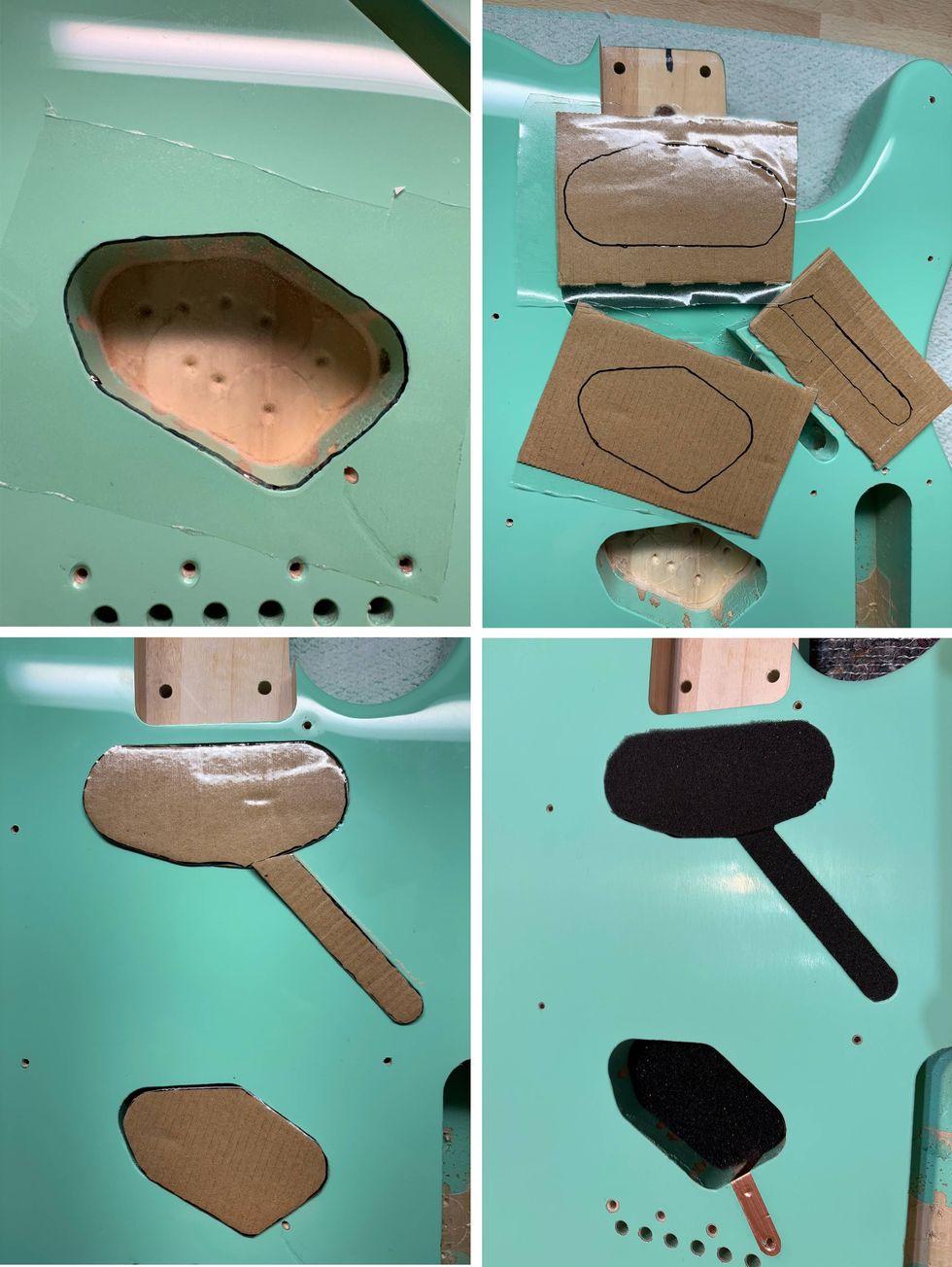
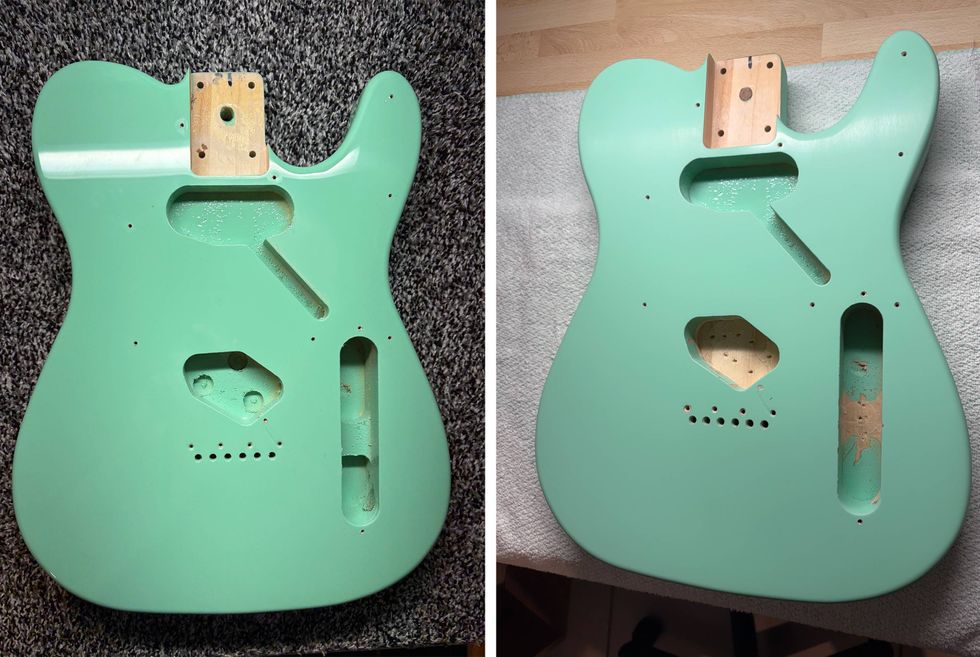
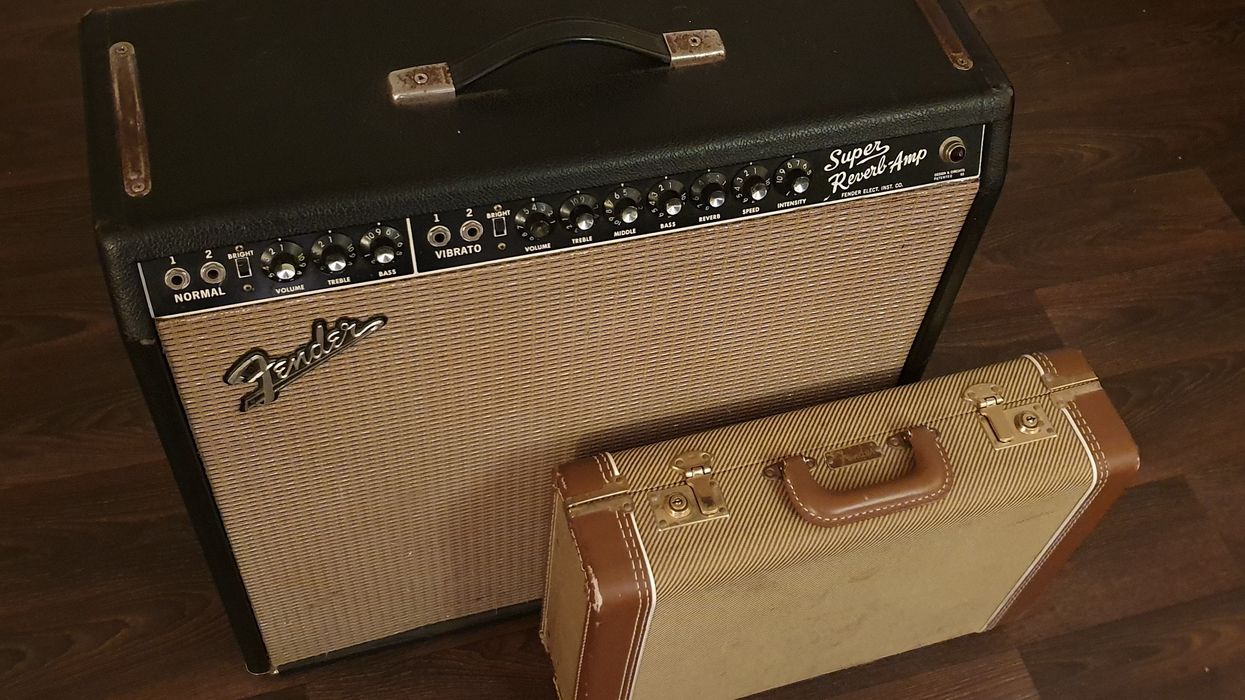
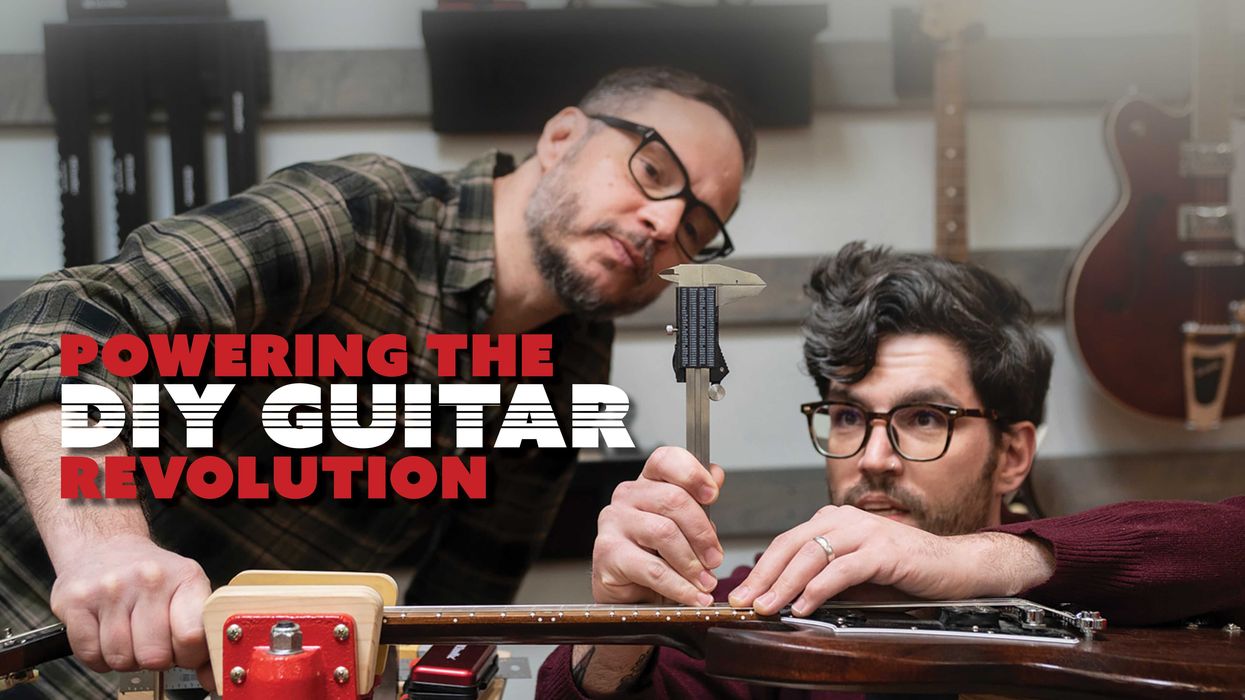
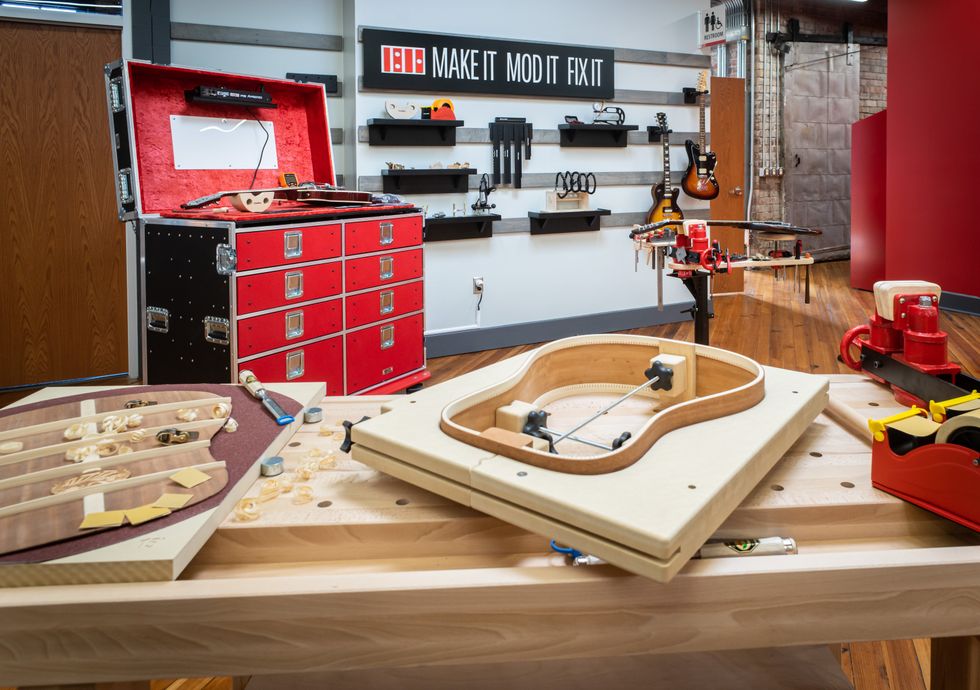

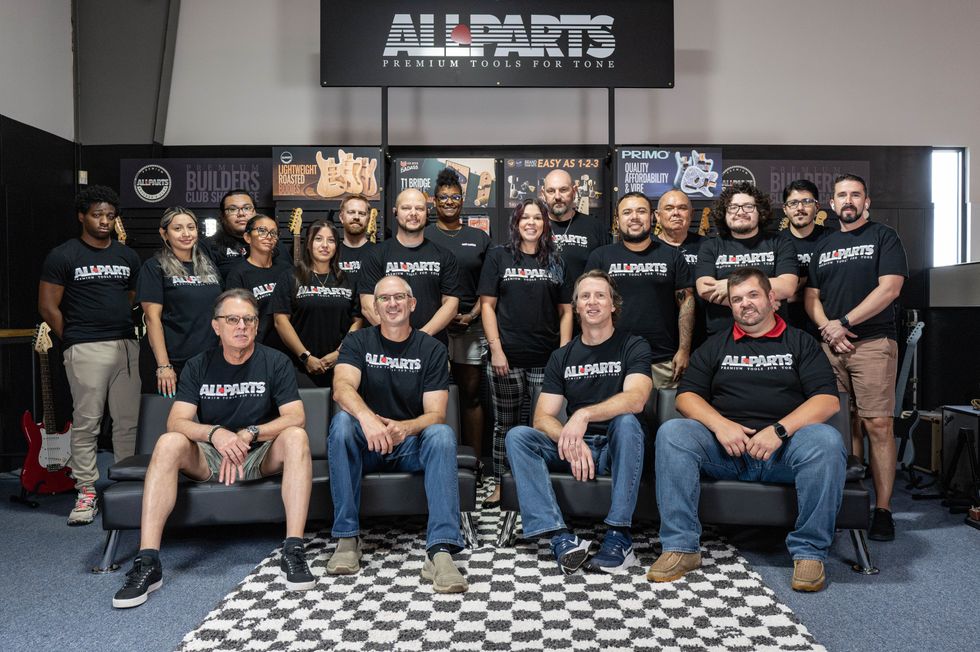 The Allparts team at their Houston warehouse, with Dean Herman in the front row, second from right.Photo by Enrique Rodriguez
The Allparts team at their Houston warehouse, with Dean Herman in the front row, second from right.Photo by Enrique Rodriguez